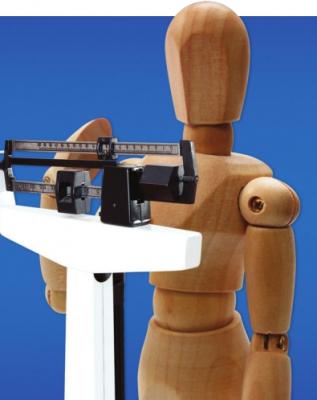COVID-19 and Morbid Obesity

Do your part to decrease your risk of infection and serious complications
Never in the history of medicine has there been such a rapid and worldwide effort to combat a medical disease process. This has included research in epidemiology, disease treatment and vaccine development. There have been drastic social measures as never before seen. Production and distribution of medical equipment has exploded at an unimaginable rate. The result of all of this is a massive amount of new knowledge in fighting what we all know now as coronavirus, specifically Covid-19.
 As chief of surgery at Christus Highland hospital, I have witnessed firsthand the trail of devastation that Covid-19 has left behind. I see heroic efforts by the medical staff at our facility every single day. People tend to focus on the doctors and the nurses, but in reality, there is an enormous team of medical individuals that have worked together to save so many lives. While the deaths and tragedies are what tend to make the news, we fortunately see many more success stories on a day-to-day basis.
As chief of surgery at Christus Highland hospital, I have witnessed firsthand the trail of devastation that Covid-19 has left behind. I see heroic efforts by the medical staff at our facility every single day. People tend to focus on the doctors and the nurses, but in reality, there is an enormous team of medical individuals that have worked together to save so many lives. While the deaths and tragedies are what tend to make the news, we fortunately see many more success stories on a day-to-day basis.
So back to the purpose of this article; one of the things that we quickly noticed was the high number of Covid-positive patients that are morbidly obese. This is not just a local occurrence. It is seen across the globe, and researchers now recognize that morbid obesity is one of the single biggest risk factors for not only becoming infected with Covid-19 but also having a poor outcome. A recent study looking at 3,000 patients who tested positive for coronavirus in one hospital system found that 59% of those hospitalized due to Covid-19 were obese, with an average BMI of 33. They also found that obesity doubled the chances that a patient would end up in the ICU. It is becoming apparent that obesity is probably the second most significant risk factor when it comes to Covid-19, second only to advanced age.
There are multiple reasons why we believe obesity is such a risk factor. It causes significant mechanical restrictions on breathing, which makes one prone to many sorts of pulmonary complications. The receptors in our body that Covid-19 attaches to are also found in much higher concentrations in adipose tissue. Morbid obesity leads to a pro-inflammatory state in the body, which may worsen the over-exuberant immune response to the virus seen in sepsis. Morbid obesity also leads to a host of other medical issues, including diabetes, hypertension and sleep apnea, all of which can increase our susceptibility to viral infections.
It is unlikely that this virus is going to disappear any time in the near future, and we will likely be dealing with this for years to come. It benefits us all to mitigate any risk factors that are within our control. Significant weight loss can be one of the most important ways that we can alter the course of this infection. And when it comes to morbid obesity, we have known for years that bariatric surgery is overwhelmingly the most successful tool that we have. With operations like the laparoscopic gastric bypass and the laparoscopic sleeve gastrectomy, we can lower a person’s excess body weight by 60- 75%. This not only results in dramatically better health overall, but we are now learning that this also appears to decrease one’s risk of developing some of the severe complications associated with the Covid-19 infection.
There are no simple answers. This is a medical phenomenon the likes of which we have never seen in our lifetime. Doing our part to decrease our risks is one the most important things we can do. This can include social distancing measures to decrease our exposure, as well as efforts to improve our overall health, such as weight loss and exercise. There are many things that we cannot control about the Covid-19 outbreak, but these are certainly things that we can. Hopefully, everyone doing their part on an individual basis will help bring this worldwide pandemic to an earlier demise.
Dr. James R. Barnes is a bariatric surgeon at Highland Clinic and the chief of surgery at Christus Highland. He provides laparoscopic gastric bypass and the laparoscopic sleeve gastrectomy, as well as revisional surgery for failed Lap Band and stomach stapling. He also performs other laparoscopic surgeries including gallbladder removal, hernia repair and anti-reflux surgery. He is accepting new patients and can be reached at (318) 798-4433; located at 1455 East Bert Kouns Industrial Loop, Shreveport. Visit https://providers. highlandclinic.com/james-r-barnes-md/ for more information.
